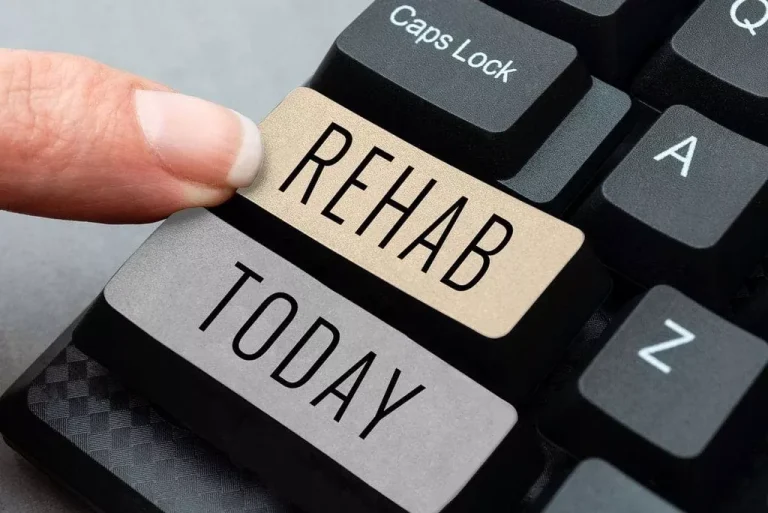How to Get Someone into Rehab: Tips from Specialists

Over 20 million people in the USA currently need narcotic or strong drink addiction treatment. It is vital to know approximately 80 percent of these people do not go into rehabilitation, most often due to the fact they do not realize the importance of therapy. At the same time, they cannot independently refuse liquor or drugs. If your relative suffers from dope overuse, ask how to get someone into rehab.
Many drug addicts and alcoholics who do not want to undergo treatment stop caring for themselves and those around them. You must understand the attitude of your relative, his behavior, and his words during the period of intoxication are beyond his control. How to help someone with drug addiction? Let’s try to figure this out together.
The leading indicators of hard liquor and narcotic overuse
Before assisting a family member in stopping abusing narcotics or strong liquors, you must study the primary signs of addiction. Consider the most famous early signs:
- secrecy about everything,
- trying to avoid responsibility,
- constant requests to borrow money without a rational explanation of the reasons,
- hygiene problems,
- drastic mood changes,
- attempts to isolate from the world,
- smell of smoke or alcohol.
These are the leading indicators that your relative craves narcotics or alcohol. The clear indicators may differ depending on the degree of overuse and the substances consumed. A man who cannot live without strong drinks will most likely come home smelling of alcohol, but if a human prefers various dope, you can not immediately notice this.
If a member of your family intake cocaine and a variety of stimulants, there are often no outward signs. At the same time, he will show significant activity and possibly stay awake for a long time. People who are addicted to heroin also have insomnia. However, until you notice injection marks in their veins, you may not comprehend that your partner or relative is a narcomaniac. Having found any indicators of overuse, you should clearly realize how to get someone into rehab.

Take back control of your life and start on the road to recovery now.
Find out if the human does not refuse to go through rehab
If you find the basic indications of overuse, talking to the human and finding out what he thinks about his illness is vital. Often people realize that dopes and strong liquors are negatively affecting their existence and don’t comprehend what to do to begin therapy. Rehabilitation plans work most effectively when the patient participates voluntarily. Ask if the person would like you to register them at the health center. Let’s take a look at a few recommendations from experts about the best way to conduct conversations with addicts:
- Select the right time: if a person comes home in a state of alcohol or drug intoxication, it is better not to start communication.
- Gather information: get more data on addiction before suggesting a specific action.
- Do not judge your relative: substance abuse is often associated with mental problems. It is critical during the conversation that drug addicts feel not condemnation but tenderness and understanding.
- Be honest and open: speak as calmly and kindly as possible, ask questions, and listen carefully to the answers. It is an excellent chance to understand a person’s feelings and whether he knows the depth of his problems.
Try to educate the man about the safety of narcotic treatment and detoxification under the control of professionals. Some people shy away from rehab because they fear the physical pain of drug withdrawal, but qualified doctors may assist in reducing the symptoms. It is vital to comprehend what to say to someone in rehab.
The main aspects of the intervention
Intervention may be the last resort to get a relative to сonsent to medication and rehabilitation. Your conversations with the patient can be beneficial, but it is better to employ the services of a skilled proficient.
The intervention, as a rule, is less spectacular than in the movies. It is rarely used as a percussion instrument or to influence a human at a time when he does not expect it. Professionals will explain the optimal course of action to your relative. Before meeting with the patient, you may arrange a telephone conversation with a consultant to engage the human in the procedure. Besides, the specialist who conducts the intervention can meet with the family of addicts to prepare them.
The main purpose of intervention is to explain to a human how a dangerous habit destroys not only his life but also the fate of his relatives and suggest variants to solve the trouble. This discussion includes the proficient, the patient, and his kin. As a result of such communication, most people who overuse dopes and strong liquors consent to undergo therapy to lead a sober life.
Suppose a family member reports that they decide to enter rehabilitation. In that case, starting this process as soon as possible is essential to raise the likelihood of successful healing. Many medical centers in the USA are ready to accept druggies today.

Can I force someone into rehab?
You should comprehend how to get someone into rehab against their will. Some state principles let mothers and fathers of underage children be coerced into undergoing therapy to get rid of narcotics and liquor addictions without their consent. However, when a person turns 18, the situation changes. That’s why regulations have come into force in some regions on involuntary treatment for individuals over 18.
May you coercion a relative to go on medication? In some situations, this is quite real. One of the variants is to apply to the judicial authorities, which are ready to exempt specific categories of delinquents with various addictions from prison if the accused consented to undergo a specialized clinic rehabilitation course. But before going to court, a person must be arrested and admit guilt.
An important point for families who want to help a loved one eliminate a destructive habit is implementing an act of compulsory obligation when discussing substance use disorder; such norms are in force in most US states. However, if you want the directives on involuntary treatment to come into force, certain conditions must be met, e.g., suicidal tendencies, aggressive behavior, or dementia in the patient.
Basic variants of the therapy
When treatment programs are created individually, they can be adapted, considering the person’s needs and situation. To achieve maximum effectiveness of therapy, the active participation of people undergoing healing is necessary at every phase of the path. Let’s analyze the most popular rehabilitation systems:
- Inpatient treatment provides that a human is in a hospital under the constant control of medical personnel. It is usually the influential therapy phase, which is especially relevant for people who have abused narcotics and strong drinks for a long time to reduce consumption safely and individuals who have previously had a recurrence.
- Outpatient treatment may be required at the end of an inpatient program but is occasionally chosen separately. In this healing variant, the human lives at home but attends scheduled appointments as part of the convalescence algorithm.
- Support groups are needed for people trying to eliminate addiction and relatives who have experienced moral and physical pressure. Participation in such activities is provided during hospital treatment and lasts in an ambulatory to motivate a human to lead a sober lifestyle. You have probably heard about associations of anonymous alcoholics and narcotic addicts.
Although there are various therapy variants, the algorithm choice depends on the degree of the overuse, medical history, financial position of a human, and other circumstances. A GP or addiction therapy specialist will explain how to get someone to go to rehab and design a rehabilitation algorithm to save your relative.
The main phases of registration in a medical center
After deciding on the treatment, you should speak with the staff of the selected medical institution. During the first meeting, specialists will want more information about the patient, the substances he intakes, the timing of consumption of narcotics or strong drinks, and the therapy history. Doctors may also ask questions about the patient’s general health and mental disease. Sometimes medical proficients may also touch on other topics:
- whether psychiatric help was provided,
- a checklist of medications the person is taking,
- family status,
- hereditary diseases,
- legal matters,
- place of study or work, etc.
Having collected all the necessary insights, specialists can provide complete assistance to the patient. After discussing all the issues of treatment, you can move on to the financial aspects. The clinic staff is ready to inform the family about the following points:
- how much will the therapy cost
- features of the use of insurance,
- scholarships (if any),
- payment options,
- possible care levels.
After agreeing on all the above issues, you can plan a trip. During the intervention, it is vital to discuss the conditions of transportation to transfer the patient to the hands of doctors as soon as possible. If the human has agreed to rehabilitation, he can ask relatives or buddies to drive them to a medical institution.

This can be a difficult journey, but you don’t have to go it alone. Let us be your guide and provide you the environment needed to regain control of your life and begin the path to recovery.
Consider aftercare
Addiction rehabilitation is the premier phase on the road to healing. When you study how to get someone into rehab, it’s essential to comprehend the primary test begins when a human leaves the clinic and returns to real life. Many options exist for lifelong recovery, including moving to the Eco Sober Houses in Boston, USA. The primary mission of such a residence is to provide people with a safe and healthy environment to solve problems related to substance addiction.Clients at Eco Sober Houses engage in a structured recovery process while maintaining their daily routines – attending work, pursuing education, and connecting with friends. Contact us by phone or fill out the feedback form to give your loved one a new, better life!




